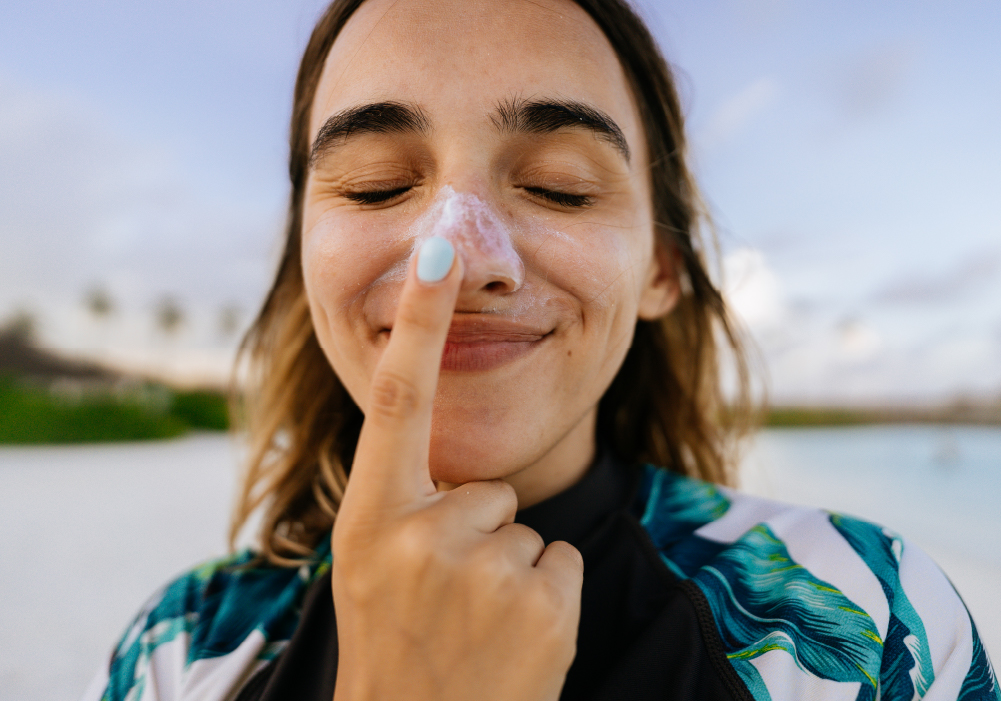Sunshine is good for us! It helps your skin make vitamin D, improves your sleep and boosts your mood – but too much sun can be harmful to your health.
Sunlight travels to Earth as a mixture of both visible and invisible rays/waves. The longer of these ultraviolet (UV) light waves are UVA rays, and the shorter, more harmful waves, are UVB rays. UVB rays damage the surface of your skin but both types of waves can travel more deeply into the skin and cause damage. When UV rays enter skin cells, they upset delicate processes that affect the skin’s growth and appearance.
Sun damage to your skin cells can’t be reversed and along with signs of premature aging, sunspots, and sunburn scars, too much exposure to UV rays can lead to skin cancer, which is the most common type of cancer in the United States.
The best way to protect yourself is to limit your exposure to sunlight.
Sun safety precautions include:
- Wear sunscreen, even when it isn’t sunny. Choose a sunscreen that is an SPF of 30 or more and water resistant.
- Don’t use vitamin D as an excuse to sunbath. You only need 10-15 minutes of sun exposure to get enough vitamin D, after that it’s time to apply sunscreen.
- Re-applying sunscreen every 2 hours. Sunscreen is not a one and done process, be sure to re-apply often and always after swimming or physical exertion.
- Avoid direct sunlight. Find a shady spot or create one with a big umbrella to relax in.
- Know when UV rays are strongest. UV rays peak in the middle of the day, try to not to be out at this time, or be somewhere shaded.
- Don’t use tanning beds or sun lamps. While they may seem like an alternative to sunbathing, they carry the same health risks.
- Cover up. Wear wide-brimmed hats, sunglasses, and/or sun protective clothing.
Safety doesn’t stop there. It’s important to see a board-certified dermatologist for a thorough skin exam once a year, more often if you have a history of skin cancer, and regularly conduct a home examination of your skin.
All BHT medical carrier partners offer members direct access to in-network dermatologist and specialists across the state. Learn more about Health Insurance products with Business Health Trust.




